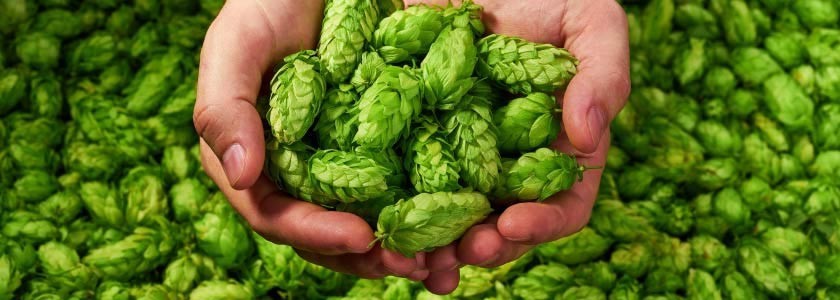Last year alone, 58 tons of high-quality hops were produced in Bulgaria, which, in addition to local beer production, were also exported abroad, including to the largest beer producer in the EU – Germany, reported the Union of Brewers.
“Beer is the only beverage with hops and to a large extent this raw material determines the typical qualities of beer – bitter taste, unique aroma and stability of the foam. For hopping, the hop cone, rich in alpha- and beta-bitter acids, hop essential oil and a number of biologically active substances, is used,” commented Prof. Gabriela Marinova from the Institute of Cryobiology and Food Technologies.
According to data from the Union of Brewers, which last week celebrated its professional holiday, in 2022, 500 million liters of beer were produced in Bulgaria and 523 million liters were sold. 435,000 glasses of the drink were served per day in restaurants, cafes and hotels alone. 13% of sales are through restaurants, and the remaining 87% – in the store network.
During the summer months, from May to August incl., 1,732,000 liters of beer are produced every day and 1,911,000 are sold. 50% of adult Bulgarians consume beer at least once a week, and nearly 70% at least once a month.
The biggest beer lovers continue to be the users from the Montana region, who drink 11 times a month, followed by the residents of Ruse and Varna – 10 times, according to the data of the union.
In order for consumers to be aware of what different beers contain, brewers in the country continue to voluntarily put a list of ingredients on the labels of their products and their energy value. “Since 2017, the members of the union have been providing data on the calories per 100 ml of beer. In general, domestically produced Pils-type lager beers contain between 33 and 48 kcal./100 ml. For non-alcoholic beers, these values are lower and vary between 15 and 25 kcal./100 ml,” commented Ivana Radomirova, executive director of the organization.
In 2022, 20,440 tons of glass bottles were put on the market by breweries, of which 57% were reusable. The new “Bring me back” initiative is underway: a sticker with this appeal has been placed in 10,000 stores in the country.

